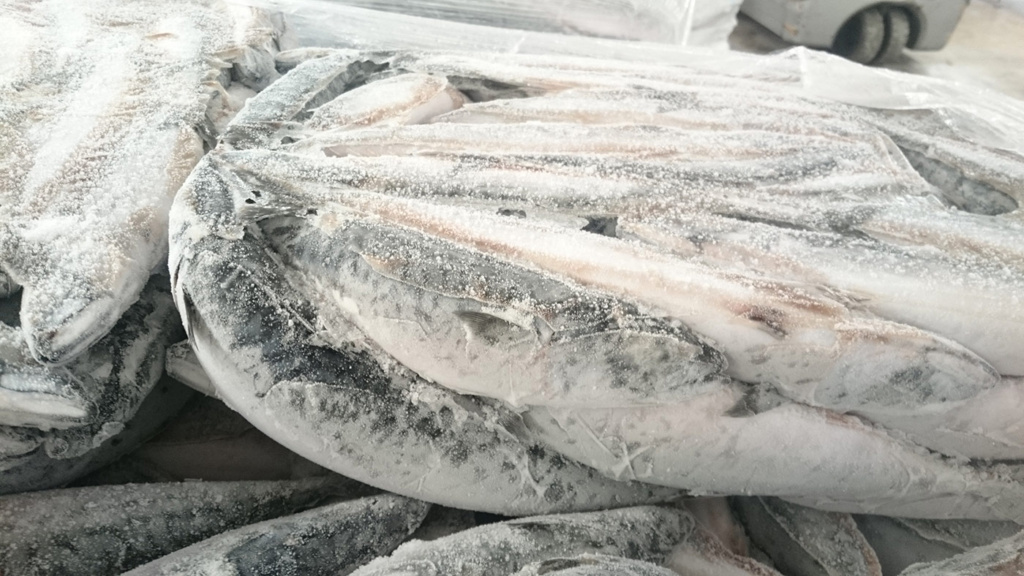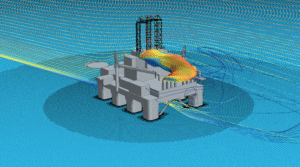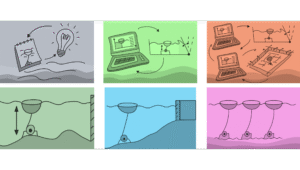The world needs a clear plan for how refrigeration can help ensure food safety, reduce emissions and address climate change.
Energy-efficient technologies that use clean, environmentally friendly refrigerants are essential for minimising the refrigeration sector’s climate footprint, and not least, ensuring food safety and reducing food waste.
Did you know that food systems contribute to about a third of the world’s greenhouse gas emissions?

A significant portion of the food needs refrigeration to maintain quality and shelf life. In our region, the cold chain mostly works well, but here the primary challenge is that we throw away far too much food. Think of all the resources that have been used to produce, process, transport and store food that is ultimately thrown away, contributing to CO2 emissions and sometimes also generating methane emissions, an even more potent greenhouse gas.
In poorer countries, food waste often occurs earlier in the value chain, due to insufficient and limited cold chain infrastructure. A study conducted by The International Institute of Refrigeration (IIR) shows that 12% of the world’s food production could have been saved with a functioning cold chain. Reducing global food waste from a third (33%) to a fifth (20%) will have a significant effect on resource use and emissions.
Focus on refrigeration technology and the crucial role of the cold chain in ensuring food safety is therefore extremely important.
A warmer world needs more cooling
The world gets warmer, and we experience more extreme weather. It is important to take action to stop this development from going even further in the wrong direction. 194 countries have now adopted the Paris Agreement, which was signed during the UN climate conference in 2015. It aims to limit the global temperature increase to well below two degrees Celsius, with efforts to pursue 1.5 degrees.
At SINTEF, we conduct research on cooling and cooling technology. Cooling is and remains important both to reduce emissions and to adapt to rising temperatures. It’s not just about 1.5 or two degrees; we are already seeing increasingly frequent heat waves in the world with temperatures of 40-50 degrees Celsius, especially in the northern hemisphere. Many vulnerable people die because they lack access to cooling.
There are various ways to reduce the effects of extreme heat. Some of these methods are traditional and are often referred to as passive cooling. These include creating shade, using reflective surfaces, and adding insulation to prevent solar heat from entering buildings. Passive cooling also involves optimising natural ventilation to help dissipate heat from inside buildings.
Air conditioning for convenience and inconvenience
Air-conditioning (AC) is a widely used and relatively affordable solution, leading to increased use as wealth increases. However, there are, several climate-related challenges associated with its use.
Firstly, these systems require electricity, which can result in indirect emissions, particularly if the electricity is generated from fossil fuel sources. In addition, AC systems frequently use refrigerants with high global warming potential (GWP).Some refrigerants still used in the global south are even ozone-depleting. While these refrigerants do not directly impact on the climate or the ozone layer as long as the system is sealed and well-maintained, emissions can occure due to production processes, system leaks and improper disposal of such systems.
This applies not only to AC, but also cooling systems used in the industry, grocery stores, and household refrigerators. To reduce emissions, we must use energy-efficient systems, reduce the need for cooling and switch to environmentally friendly refrigerants. In Norway, for instance, the grocery sector has made significant progress by primarily adopting CO2-based systems that provide both heat and cooling to the stores.
Global cooling pledge
72 countries have now signed the Global Cooling Pledge, which was launched at COP28 in 2023. The agreement aims to reduce cooling-related emissions by 68% by 2050, significantly expand access to sustainable cooling solutions by 2030, and improve the global average efficiency of new air conditioning units by 50%.
So far, countries have committed to incorporating cooling-related measures in their Nationally Determined Contributions (NDCs). These NDCs are action plans outlining how countries intend to reduce national emissions and adapt to climate change. The third version of the countries’ NDCs is expected early next year, and it will be exciting to see the role refrigeration will play in these plans. At COP29, a ministerial meeting was organised where many countries and organisations expressed their support for this agreement.
An important contributor
The International Institute of Refrigeration (IIR) is an intergovernmental organisation dealing with all aspects of refrigeration, including heat pumps. The IIR was among the organisations that supported the “Global Cooling Pledge” and contributed to the development of the “Global Cooling Watch”. IIR emphasises thevital role of refrigeration technology and the cold chain in maintaining food safety by reducing food waste.
Furthermore, we recognise the significant contribution of heat pumps to energy security and achieving carbon neutrality in the heating sector. We stress the importance of promoting energy-efficient technologies that use clean, environmentally friendly refrigerants to minimise the climate footprint of the refrigeration and heating industries.
We urge Norwegian politicians, research and development funders, and industry leaders to adopt a clear and strategic plan outlining how cooling technologies can contribute to both reducing emissions and addressing climate change. While we already have numerous effective solutions, we do not yet have all the answers. Continued research and development are essential, as we still need innovative and smart solutions to meet future climate challenges.
- SINTEF’s advice for COP29
- https://globalabc.org/events/financing-adoption-passive-cooling-strategies-cooler-future
- https://globalabc.org/events/district-cooling-essential-player-sustainable-urban-development-and-global-decarbonisation
- https://www.norden.org/en/information/broadcasts-cop29
- https://enough-emissions.eu/
- https://www.ntnu.edu/indee









Comments
No comments yet. Be the first to comment!